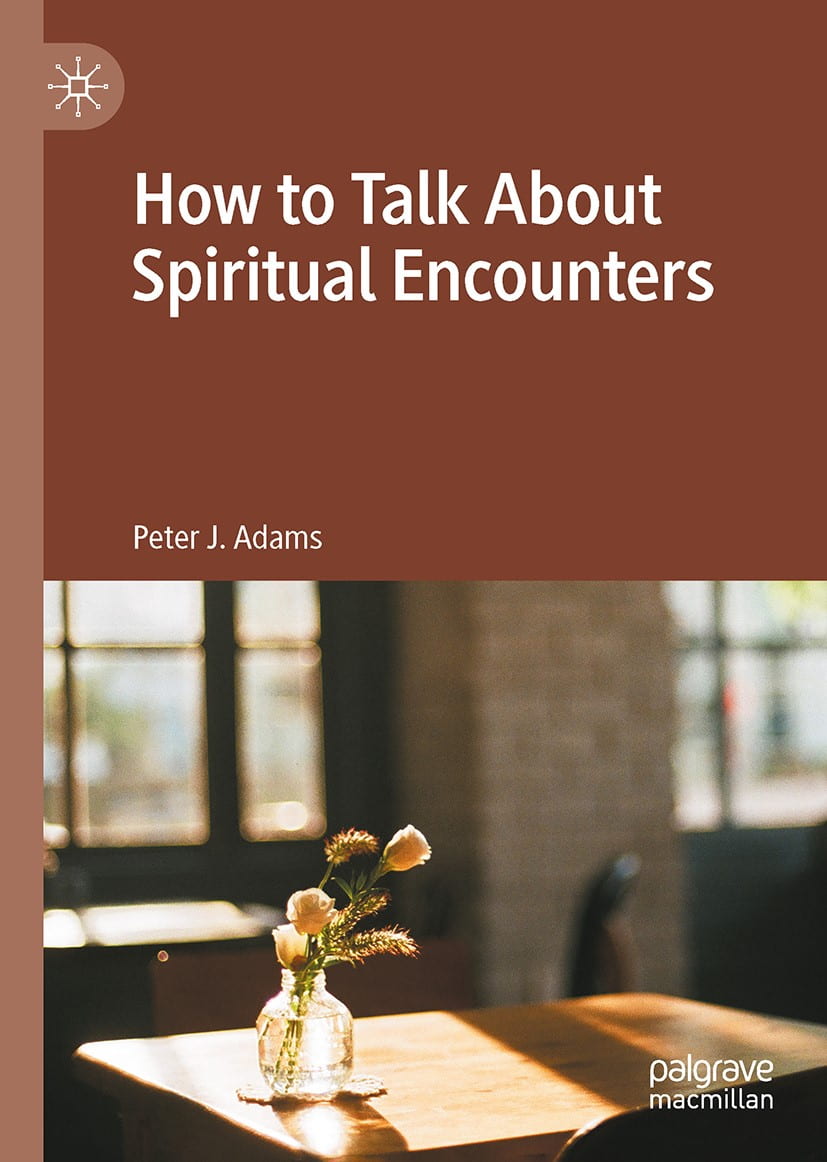Reviews & Endorsements
How to Talk About Spiritual Encounters
New York: Palgrave Macmillan, 2020
Peter Adams has written an excellent, accessible, interesting and evidence informed book on spiritual encounters – a topic that is not easy! While we have a growing number of books in the spirituality genre, few if any, have the academic depth of this one. Yet at the same time, Peter has written an entertaining narrative exploring, in quite some detail, spiritual encounters. He does it with a well-proven Socratic approach; Peter sets up the main character (Bernard, a retired medical doctor) in a café, were he meets five different characters, where they have wide-ranging conversations about spirituality. The beauty of this approach is it allows the author to work through ideas with various types of people and points of view as scepticism, religious, science, therapeutic and naive. Jarrod is one of the best, as he initially believes such experiences are “waffle” and “absolute drivel”, producing some good arguments on both sides.
The central theme suggests that spiritual encounters are more common than most people think; they are useful and add meaning to life; and while we live in a world that is mostly spirituality illiterate, when we try, we can articulate and share these experiences producing positive outcomes for all. Peter argues through realistic conversations that talking about spirituality is at odds with the dominant scientific language that demands precision, as opposed to the metaphorical, lyrical and abstract nature of spirituality discussions. Drawing on mystical, wisdom and religious traditions, as well as modern evidence, ultimately Peter argues that for our own wellbeing we need “space, permission and encouragement” (p. 65) to talk about spirituality…
This is a timely book in a post-religious world looking for ways to talk about spirituality and such encounters. It will appeal to academics with the book including two appendices, a large bibliography and thirty page of notes; but similarly attractive to all those willing to think about these things seriously, while being entertained. The linguistic analysis was a little too much for me at times, but it did give a real point of entry into a language that can be ‘mystifying’! Peter has written a book that will draw readers into the conversation, into “spiritual talk”, that is both everyday (“spiritually tuned-in while gardening”) and transcendent. Highly recommended!
Spirituality is a topic on many people’s minds at the moment but we find it difficult, awkward or embarrassing to discuss it. How to put in words what is often regarded as beyond expression? How to Talk About Spiritual Encounters explores this problem in an informal setting, using colloquial language. It is an ingenious work that should interest a wide range of readers, and many will find their own experiences reflected in these pages.
This book offers an imaginative exploration of key themes in contemporary spiritual studies through a series of café conversations. The narrative approach allows flexibility, nuance and a sense of process, inviting the reader to participate as a further contributor to the conversation. The content is accessible, but thoroughly grounded in critical sources.

Other References
- More on spirituality
- [ARTICLE] ADAMS, P.J. (2017) Oscillating imbalances: Responding to the existential in major life transitions. Journal of Social Work Practice, 31(3): 323-36. Read more
- [ARTICLE] ADAMS, P.J. (2016) Responding to the existentials of non-life-threatening chronic conditions. Medical Hypotheses, 93, 48–52. Read more
